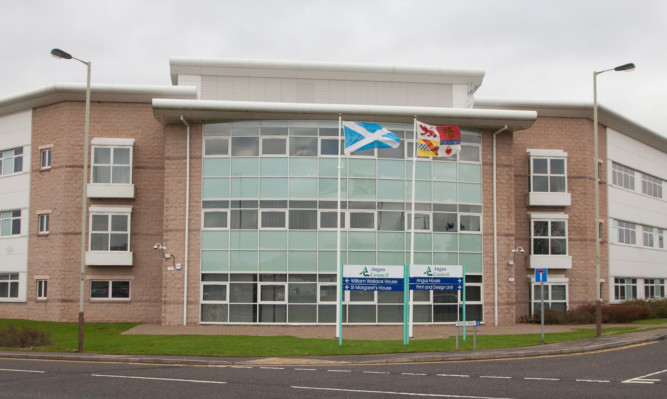Angus Council has admitted that its medium-term budget predictions have been reduced to “guesswork” by uncertainty over Government funding.
The local authority had prepared for a three-year funding gap of £26.5 million even after programmed savings.
But an updated document presented to a meeting of the full council has identified this figure may be as much as £35.1m due to “uncertainty” over money from the Scottish Government.
Councillors in Forfar approved the medium-term financial projections for 2017-20 and the programme to keep the local authority “financially sustainable”.
Finance director Ian Lorimer noted this financial year’s local Government finance settlement was “particularly challenging” and reduced “well beyond what had gone before even compared to the early years of austerity”.
Last year’s projections assumed a 1.5% cash reduction but turned out to be 3.4%.
“There are so many factors which might influence the council’s grant allocation from Scottish Government in future years that any projections are largely guesswork,” he said.
“The final position will be influenced by the Chancellor’s March 2016 Budget and any knock-on consequences for the Scottish Block; the outcome of the Scottish Parliament elections; the priorities of the incoming Scottish Government; Scottish Government decisions on taxation and the allocation of the total resource available and prevailing economic conditions.”
There is no information available on what level of cut, if any, might be applied to local Government funding for 2017-18 to 2019-20.
The next update will be brought before councillors around September to take Scottish Government future spending plans into account.
The local authority intends to pursue further savings through efficiency reviews including its Transforming Angus programme, and the possible ability to increase council tax after the forthcoming Scottish Government elections.
Mr Lorimer believes a 2% increase for 2017-19 would raise £5.7m toward the increased gap.
He adds: “Although dependent on the outcome of the Scottish Parliamentary elections in May 2016 there appears to be recognition by the main political parties that the council tax freeze, which has existed for the last eight years, is no longer sustainable given the other demand pressures on local Government services and past and future reductions in the Government grant.”
